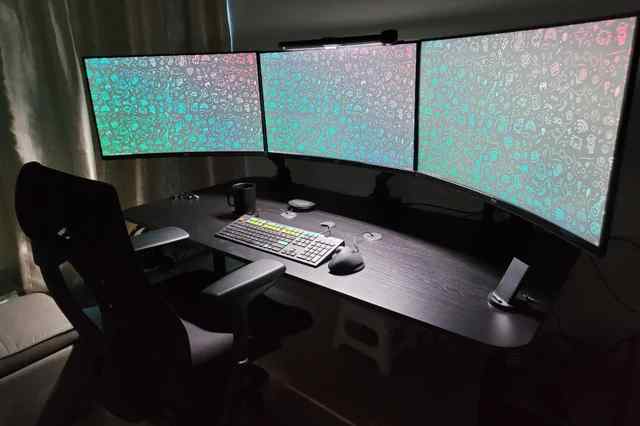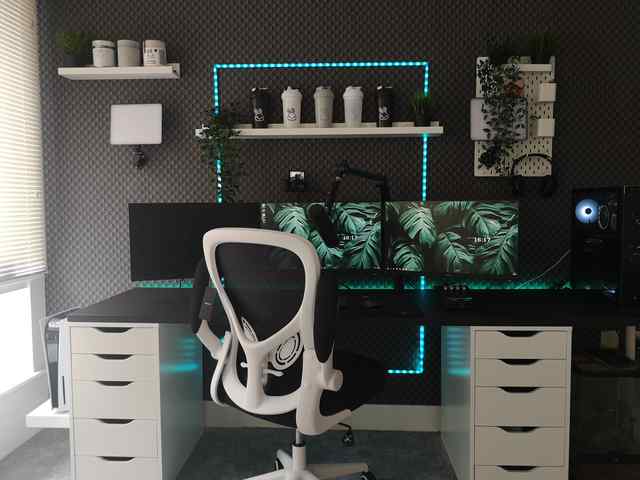Greetings gamers! The question we’re looking to answer today is one that plagues every PC gamer’s mind. How long does a gaming PC actually last?
So you’ve built your sweet custom gaming rig, or are looking to build one soon and you’re wondering how long this investment will do you good. Unlike consoles, which last plenty of years between generations, gaming PCs become obsolete much quicker. With new processors and GPUs coming out regularly and games becoming more and more demanding with each release, the ability of your current PC to perform excellently diminishes greatly.
However, gaming PCs come with the major advantage of being able to upgrade them as you need, sparing you from buying an entirely new machine. On the other hand, consoles lack this ability and the user is at the mercy of the manufacturer for upgrades. This makes PCs very attractive to gamers that like having control over their machine and its parts. While having the option to swap out parts when you want is nice, it brings one to wonder when the perfect time to do so is. We will take an in-depth look at this problem in this article, to give you a rough idea of when you should upgrade your gaming PC.
Also read: Best CPU-GPU Combos for Gaming
Different Components of a Gaming PC

To answer the question on everyone’s minds, we’ll have to look at the different components that a gaming PC consists of.
Gaming PCs are modular and can be upgraded as per the users’ requirements, this allows you to only swap out parts that are showing their age and keep ones that can still go on for a couple more years. Different components will have different lifespans. For example, a mouse will obviously last longer and still perform like new after a few years when compared to the system’s GPU.
Monitor
Let’s start off with the component that allows you to view and take in the outstanding visuals of your games. Thankfully, monitors are one of those parts that stay functional and pretty up to date for a long period of time. An LCD monitor will last you from between 30,000 hours to 60,000 hours. While this might sound less, it comes up to between 10-20 years of usage when you assume 8 hours of usage per day! Similarly, an LED monitor goes up to around 50,000 hours.
Keyboard and Mouse
Keyboards are one of those devices that can last you many years. A keyboard has an average lifespan of up to 10 years or more. If you have a mechanical gaming keyboard, its keys are rated to go over 50 million keystrokes, and the keyboard itself can last even longer if you just replace broken keys as they break. Mice can go on for a couple of good years before they start showing their age and break down.
Processor
Most processors too last for around 5-10 years depending on how heavy they’re used and how many times they have to go through their on and off cycles. With gaming, however, you can expect your processor’s lifespan to be on the lower end of this spectrum.
RAM
Luckily, the RAM in your PC is one of the more longer-lasting components that doesn’t need frequent upgrades as long as it is of a high enough capacity. Your PC’s RAM can be functional for about 8 to 12 years, with the duration being shorter if you have high expectations from the performance you’re getting.
Storage
The storage in your PC is likely either an SSD (Solid State Drive) or an HDD (hard disk drive). SSDs are faster and more expensive than HDDs while HDDs are their slower, older, and more affordable counterparts. SSDs tend to have a lifespan of up to 10 years and HDDs can last for around 5 to 8 years.
Graphics Card
The GPU in your PC renders images to display onto the screen and is sadly one of the more shorter-lasting components. A graphics card can last you for between 3 to 5 years, and that too if used judiciously. With gaming, however, you’re looking at an actual lifespan at peak performance of 2 to 3 years.
Cooling System
AIO water cooling systems, or All in One cooling systems have a wide lifespan that can range from 1-3 years if just used heavily without any maintenance, to about 3-6 years when used properly and with regular maintenance.
Also read: Best Monitors for a Triple Monitor Setup
How Long Will Your Gaming PC Last?

Now that we know how long individual components of a gaming PC last, we can sort of make out how long your gaming PC will last as a whole. Everything depends on what your expectations are from the PC, what you really want from it. Let’s look at three different cases and lifespans.
Low Expectations
To begin with, we’ll look at a gamer who has relatively low expectations from his gaming PCs. Someone who isn’t that much of a heavy gamer and isn’t a pro competing for titles. This person just wants to play some games and have a good time. Instead of wanting to play the latest AAA games at over 60 fps at the highest settings, they’re happy with older games or newer games at lower settings. So now in this case, your gaming PC, if you buy a decent specced one, will last you a little over 5 good years without any considerable upgrades.
Moderate Expectations
Up next, we will be looking at the gamer with moderate expectations. Most gamers will fall under this category. Someone who wants to play the newer AAA titles, albeit at moderate settings, or older games at higher settings. They might compete casually and do want considerable performance from their PCs, but not as much as a professional. This gamer can look at a strong 3 to 4 years of satisfactory gaming with their PC.
High Expectations
Finally, we come to the pros. The people that eat live and breathe gaming. These gamers have very high expectations from their PCs and can’t stand playing the latest blockbuster games at any setting lower than the highest one possible. They are likely professionals that compete in large gaming tournaments with the intention to come out on top. Such gamers might need to upgrade their PC to the latest hardware every couple of years to keep up with the demands that such games and tournaments bring with them.
Also read: Best Gaming Setups
What We Recommend
After going through the last list, you now know how important your expectations are when estimating the lifespan of your gaming PC. Overall, we would say that it all boils down to two key factors. Your expectations from your gaming PC and your budget to build said gaming PC. If you have the budget to go above and beyond while building your gaming PC, sure, go ahead and fill it to the brim with the latest and greatest in PC hardware. However, that is seldom the case, now is it not?
As far as our recommendations go, we’ll only make them on the GPU, RAM and Processors of your PC as the other components don’t become obsolete as quickly as these.
What to buy is a fairly easy decision to make now. For both, someone with low expectations and someone with moderate expectations with their gaming PC, we’d suggest them to invest in a strong midrange GPU, something like an Nvidia GeForce RTX 2060 or an RTX 3050. The six core, 12 thread Intel Core i5-12400 or the current gen i7 chip are the processors that these people should be looking to buy.
When it comes to RAM, 16 gigs of RAM should be enough for these use cases, while a 32GB setup is recommended for the gamer with expectations in the higher-moderate range. The individual with low expectations won’t have to upgrade for a long time and the one with moderate expectations will be happy for a good while too. With PCs being upgradable, you’re much better off with buying mid to mid-high level components and upgrading them as needed, instead of buying the best of the best.
When it comes to gamers with high expectations, they don’t have much choice here. If you want the best performance, you’re going to have to pay the big bucks for it. However, if you’re on a budget, the higher-mid range variants of GPUs, CPUs and around 16-32 gigs of RAM is what you should get. You can always upgrade them if you feel like it in the future.
Final Thoughts
In conclusion, it is sufficient to say that the lifespan of your gaming PC depends on how heavily you want to use it and what parts you’ve chosen to build it with. Thankfully, PCs give you the freedom to swap out an older part for a newer one as technology progresses. Therefore, it makes sense, regardless of your gaming expectations, to get mid to high-mid range gaming components that you can replace when required, thus giving you a solid gaming experience and not breaking the bank.


